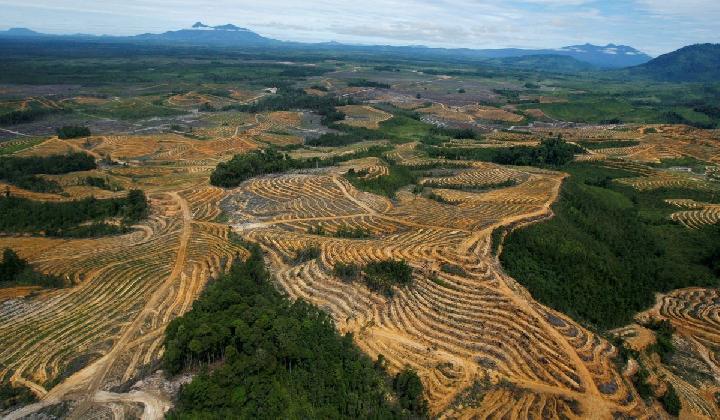Our Terms & Conditions | Our Privacy Policy
Professors From UGM and KOBI Strongly Reject Prabowo’s Deforestation for Oil Palm Expansion
TEMPO.CO, Jakarta – Indonesian President Prabowo Subianto proposed expanding oil palm plantations to increase palm oil exports. However, this idea has drawn criticism because it is considered to trigger deforestation.
The President’s statement that equates oil palm with natural forest plants is also considered misguided. Dean of the Faculty of Biology, Gadjah Mada University and Chair of the Indonesian Biology Consortium (KOBI), Prof. Budi Setiadi Daryono rejected this proposal.
He emphasized that the addition of oil palm plantations risks destroying forests or deforestation and biodiversity. Budi said that research shows that oil palm plantations cannot be a habitat for wildlife, with a biodiversity level of almost zero.
“Large, monoculture oil palm plantations increase conflicts between humans and wildlife. This has an impact on the decline in the population of protected animals, such as orangutans, elephants, rhinos, and Sumatran tigers. In addition, deforestation due to the opening of oil palm plantations increasingly threatens flora and fauna that are already protected by law,” said Budi, quoted from the UGM website.
He also reminded the government to follow Presidential Instruction (Inpres) Number 5 of 2019 concerning the Termination of New Permits and Improvement of Primary Natural Forest and Peatland Governance. By implementing this policy, more than 66 million hectares of natural forest and peatland, equivalent to the area of France, can be saved.
On the other hand, Budi also asked the government to consistently implement regulations related to environmental conservation, as regulated in Presidential Instruction Number 1 of 2023 concerning Mainstreaming Biodiversity Conservation in Sustainable Development. Prabowo’s statement equating oil palm with forest plants also received sharp criticism.
“Based on the Regulation of the Minister of Environment and Forestry Number P.23/2021, oil palm is not included in forest plants or forest and land rehabilitation plants,” said Budi.
He also asked the President to be more careful in expressing his opinion so as not to cause pros and cons in society. He suggested that strategic policies like this be formulated through Bappenas by involving various parties, including ministries, institutions, experts, and civil society, to minimize negative impacts on society, the environment, and the national economy.
Prof. Hadi Ali Kodra and Dr. Wiratno, steering committee members of the Indonesian Biodiversity Index (IBI)-KOBI Committee, also reminded the importance of the government’s commitment to protecting the global environment. They emphasized the need to respect various international conventions such as the Convention on Biological Diversity (UNCBD), the Convention on International Trade in Endangered Species (CITES), the Ramsar Convention, and the Nagoya and Cartagena Protocols.
Indonesia, as one of the world’s megabiodiversity countries along with Brazil and Congo, has a great responsibility to protect this biological wealth. “With the country’s forest area of 125 million hectares and conservation areas surrounded by thousands of villages, environmental sustainability is very important for the welfare of local communities, especially farming families who depend on forest ecosystems. If the forest is damaged, the impact will be felt by millions of farming families around the area,” said Hadi Ali Kodra.
Editor’s Choice: Academic Advises Prabowo Study Palm Oil Before Expansion
Click here to get the latest news updates from Tempo on Google News
Images are for reference only.Images and contents gathered automatic from google or 3rd party sources.All rights on the images and contents are with their legal original owners.



Comments are closed.